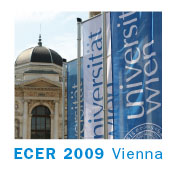New Voices, New Knowledges and the New Politics of Education Research
Prof Stephen J Ball, University of London, U.K.
The presentation will discuss and illustrate a set of general and highly significant experimental and evolutionary moves which involve the modification of state organisations, state apparatuses, and the overall institutional architecture of education policy and their relation to education research. The most basic and general of these moves is what Jessop (2002) calls destatization which involves redrawing the public-private divide, reallocating tasks, and rearticulating the relationship between organisations and tasks across this divide (p. 199).
This re-drawing and reallocation has various aspects to it but includes the reallocation of research tasks to new kinds of interests and organisations, and changes in the kinds of knowledge that are sought by governments about policy issues. It also includes new kinds of public-private partnerships within which research is undertaken. Tasks and services previous undertaken by the state are now being done by various others in various kinds of relationships among themselves and to the state and to the remaining more traditional organisations of the public sector. All of this involves an increased reliance on subsidiarity and regulated self-regulation, and is sometimes described as a shift from government to governance, or network or creative governance, it drastically blurs the already fuzzy divide between the public and the private sector. It replaces hierarchy with heterarchy.
That is, it replaces bureaucracy and administrative structures and relationships with a system of organization replete with overlap, multiplicity, mixed ascendancy, and/or divergent-but-coexistent patterns of relation. A state forms somewhere between hierarchy and network that provides horizontal links that permit different elements of the policy process to cooperate whilst individually optimizing different success criteria. There are now various manifestations of policy heterarchies in education in the West and in later developing countries and even in crisis states, working on and changing the policy process and policy relations, and involving new players, stakeholders and interests in state education, education planning and decision-making and education policy conversations.
